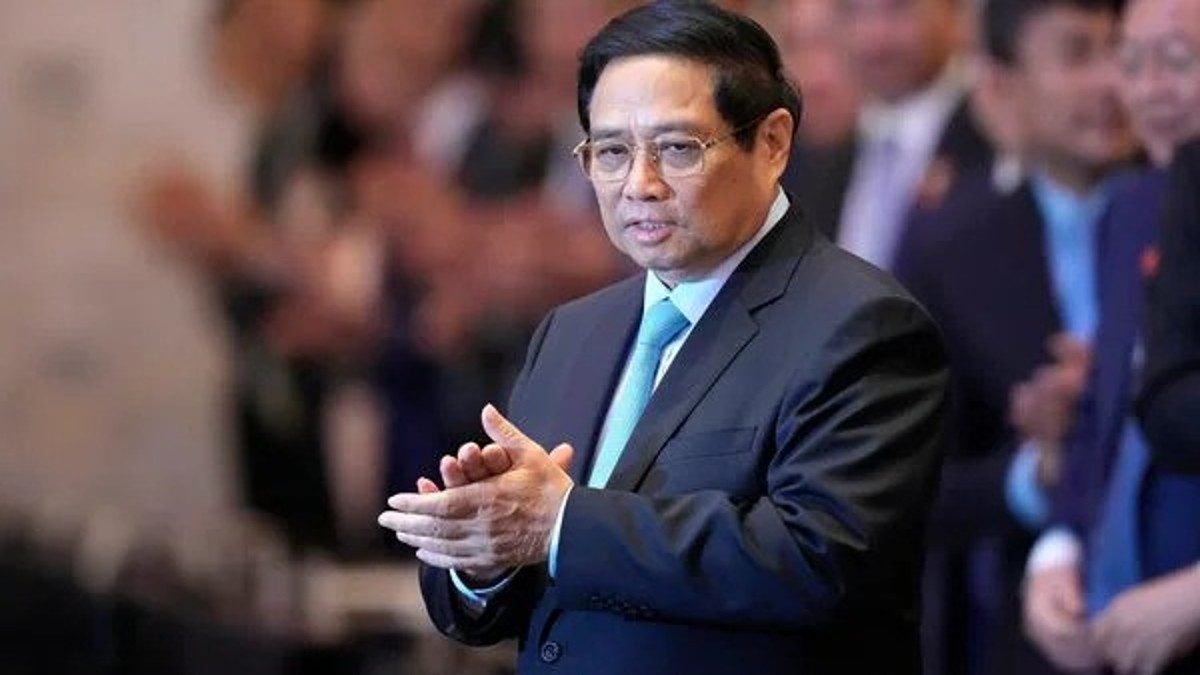Prime Minister of Vietnam Pham Minh Chinh is currently on his three-day visit to India—on the agenda seems to be a deepening of ties in defence and economy—with both countries committedly enhancing their ties, which were elevated to a ‘Comprehensive Strategic Partnership’ during Prime Minister Narendra Modi’s visit to the country in 2016.
Soon after assuming office in 2014, PM Modi had made it clear that India would walk the talk, or rather ‘Act East’, taking forward the ‘Look East’ policy towards ASEAN and other East Asian countries by fast-tracking engagement with this extended neighbourhood. With a deep focus on political, economic, and security cooperation with East Asian countries, India advocates a safe, secure, prosperous, and rules-based order in the Indo-Pacific region, providing a balance towards the expansionist ambitions of a few.
Trade and Defence
With bilateral trade having gone up to $15 billion today, when it was barely a couple hundred million only about a decade ago, both sides have demonstrated remarkable commitment to seriously work on increasing engagement. Investments and cooperation in electronics, telecommunications, pharmaceuticals, clean energy, and the digital economy may also take prominence during the visit.
Of particular importance is the engagement in the defence sector, and this is possibly likely to be the highlight of PM Pham Minh Chinh’s ongoing India visit as well. In 2023, India gifted a fully operational warship to a friendly country by handing over the in-service missile corvette INS Kirpan to the Vietnam People’s Navy, thus emphasising its commitment to deepening defence ties.
Just a year before that, in 2022, India’s Defence Minister Rajnath Singh had visited Vietnam to hand over 12 high-speed guard boats built with Indian assistance. This visit may close talks on acquisitions of the Indian BrahMos missiles as well as explore the possibilities of acquiring India’s Akash surface-to-air missile system.
Culture and Civilisational History
While the two countries deepen their engagement across sectors of strategic importance to both countries, eventually the mutual trust will solidify through people-to-people relationships. A shared civilisational ethos has the potential to catalyse these.
Impact Shorts
More ShortsWith a changing world order, it becomes rather crucial for nations to reorganise themselves, prioritising multipolarity—thus countering any averse, expansionist intentions. With the world on edge, it seems like innovation in strategic partnerships and groupings between like-minded powers may hold a solution to lasting peace and security.
Our ancient texts mention that Jambudvipa, or Bharatvarsha, which encompassed a large chunk of the subcontinent, also included East Asia, including Vietnam. Vietnam was then called Champadesh, with its residents referred to as Cham. Shiva and Shakt were worshipped in the region, which is why many temples of Shiva, Parvati, Lakshmi, and Saraswati are still found.
A Temple in Ho Chi Minh
In the 1880s, a member of the Tamil community in Siagon—now Ho Chi Minh City—built a small house where a small idol of Mariamman Goddess was kept and worshipped. Craftsmen were sent across from British India to construct a grand temple of the goddess. Due to the strong cultural linkages, when the Simha Vahana (lion vehicle of the Goddess) was brought, the city marked the procession with great enthusiasm and made it an annual affair; this also finds mention in historic Vietnamese records.
The Vietnamese consider Mariamman an equivalent of their goddess, Ba Den (literally translates to Black Lady), who is said to bless Her devotees with health and prosperity—much like Bharat’s Maa Kali. Today, the temple sees worshippers from across ethnicities—Chinese, Khmer, Vietnamese, and Indian.
Cambodian Khmer cultural and religious practices seem to connect Vietnamese and Indian forms of worship, once again establishing a historic linkage and exchange of people and culture in the Jambudvipa subcontinent.
Similar stories find their way in the overlapping lifestyle, cultural, and religious ethos of our two nations. As we come closer in our partnership, India and Vietnam may find great value in also deepening and commissioning studies to further explore the roots of some of these shared historical practices. Talking about these in mainstream channels may help enhance people-to-people connections between the two countries, deepening our already strong mutual trust.
While this visit of the Vietnamese PM is a significant milestone, it will be no surprise if Prime Minister Modi will reciprocate and visit Vietnam in the near future to further solidify the relationship between our two countries.
Priyam Gandhi Mody is an author and political communications expert. She has written four best-selling books. Views expressed in the above piece are personal and solely those of the writer. They do not necessarily reflect Firstpost’s views.
)